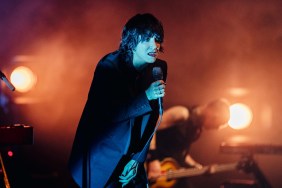Skeleten is the solo project of Sydney musician Russ Fitzgibbon, formerly of electronic duo Fishing. Fitzgibbon has been active in the Sydney music scene for over a decade. He’s currently a member of Babitha’s live band and Vlossom, the new project from Cloud Control’s Alister Wright and PNAU’s

The festival landscape has undergone major upheaval in the last three years, and Covid’s long-term impact on the music industry…











